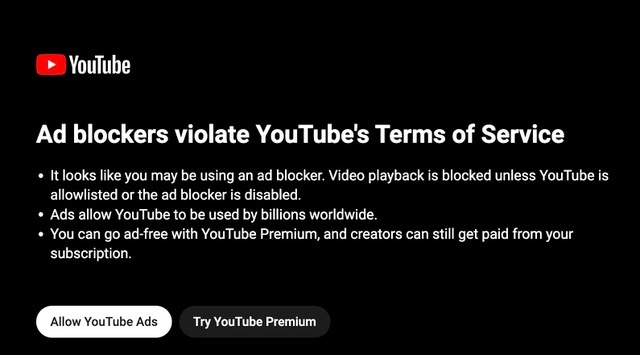this post was submitted on 10 Oct 2023
1829 points (94.0% liked)
Technology
71953 readers
3469 users here now
This is a most excellent place for technology news and articles.
Our Rules
- Follow the lemmy.world rules.
- Only tech related news or articles.
- Be excellent to each other!
- Mod approved content bots can post up to 10 articles per day.
- Threads asking for personal tech support may be deleted.
- Politics threads may be removed.
- No memes allowed as posts, OK to post as comments.
- Only approved bots from the list below, this includes using AI responses and summaries. To ask if your bot can be added please contact a mod.
- Check for duplicates before posting, duplicates may be removed
- Accounts 7 days and younger will have their posts automatically removed.
Approved Bots
founded 2 years ago
MODERATORS
you are viewing a single comment's thread
view the rest of the comments
view the rest of the comments

Implying that deleting them from your view actually deleted them.
My man thought he was permanently erasing it from history.
Next you’ll tell me cognito mode isn’t keeping my browsing completely private! /s
How can my workplace admin block Pornhub even when I'm using private mode? He shouldn't even be allowed to see what I do privately!
I mean, this is mostly borne from a fundamental misunderstanding of what "Private Browsing" mode is and was meant to be.
When you open an incognito tab on Chrome, it literally says "Now you can browse privately, and other people who use this device won’t see your activity."
It also says
Fuck using Chrome and I'm not defending Google at all here, but they never once claimed Incognito was anything more than it was.
Pretty sure Firefox says that too. Users just don't read. Like, ever. They'll get an error message saying "Important!" and click whatever button seems most likely to make it go away before calling support and demanding they "fix the computer".
If the incognito mode is not keeping your browsing private, imagine the cognitive mode!
Surely they'll actually comply, not be caught in an audit years down the line and given a friendly "Now now, we talked about this: don't get caught breaking the law again!" slap on the wrist for failing to delete and instead further monetising that data?
Under GDPR and DMA, there would be real consequences. Like "being broken up or cease to exist" magnitude of consequences. Why would they risk it for the 1% of users who actually care and set their privacy settings accordingly?
Google doesnt care about you or anyones personal data. They care about the amount they collect. If the most privacy-aware users wrestle back some data and have it deleted, so be it. Google couldnt care less. Users are like cattle to them, as long as the general "data harvest rate" looks okay they wont investigate the odd one out.
Forgive me for being cynical about the odds of those consequences actually being enacted. Giving the courts a weapon for getting such companies in line is one thing, getting the judges to actually fire it another.
A law is only ever as good as its enforcement.
If I'm wrong, of course, I'll be glad to learn that. I've just run out of optimism halfway through adolescence.
Check this out:
https://en.m.wikipedia.org/wiki/Max_Schrems
Facebook (and the complicit Irish Data Protection Comission) thought so too, an were rekt.
The case invalidated 2 seperate "safe harbor" agreements between the EU and the USA, making ANY data transfer of EU customers private data to the USA illegal without explicit consent. It was literally pandemonium in the IT sector for a few months, everyone was running stuff in US clouds and panicking.
This is what makes the EU high court (ECJ/EuGh) special: noone can pressure them politically. They couldn't care less what anyone but EU law says.
And that was "just" GDPR, now they have way more EU laws (DMA, DSA) they can throw at FAANG.
Huh. Neat. Thanks for that!
This isn't some trivial information like your precise location history, this is serious.
doesn't even matter. what matters is the meta data. if the data from the list say you like science videos with emphasis on electrical engineering, star wars podcasts and mmorpg let's plays - does that data go away apon history deletion. what about meta-meta data. if the meta data puts you on group X that receive content Y, does that go away apon history deletion. and what kind of integration does that get with the rest of the google knowledge about you...
I doubt turning off history truly does what it says either though. I think it was more about avoiding the shitty algo recc's that try to turn everyone's dad and uncle into a far right extremist.